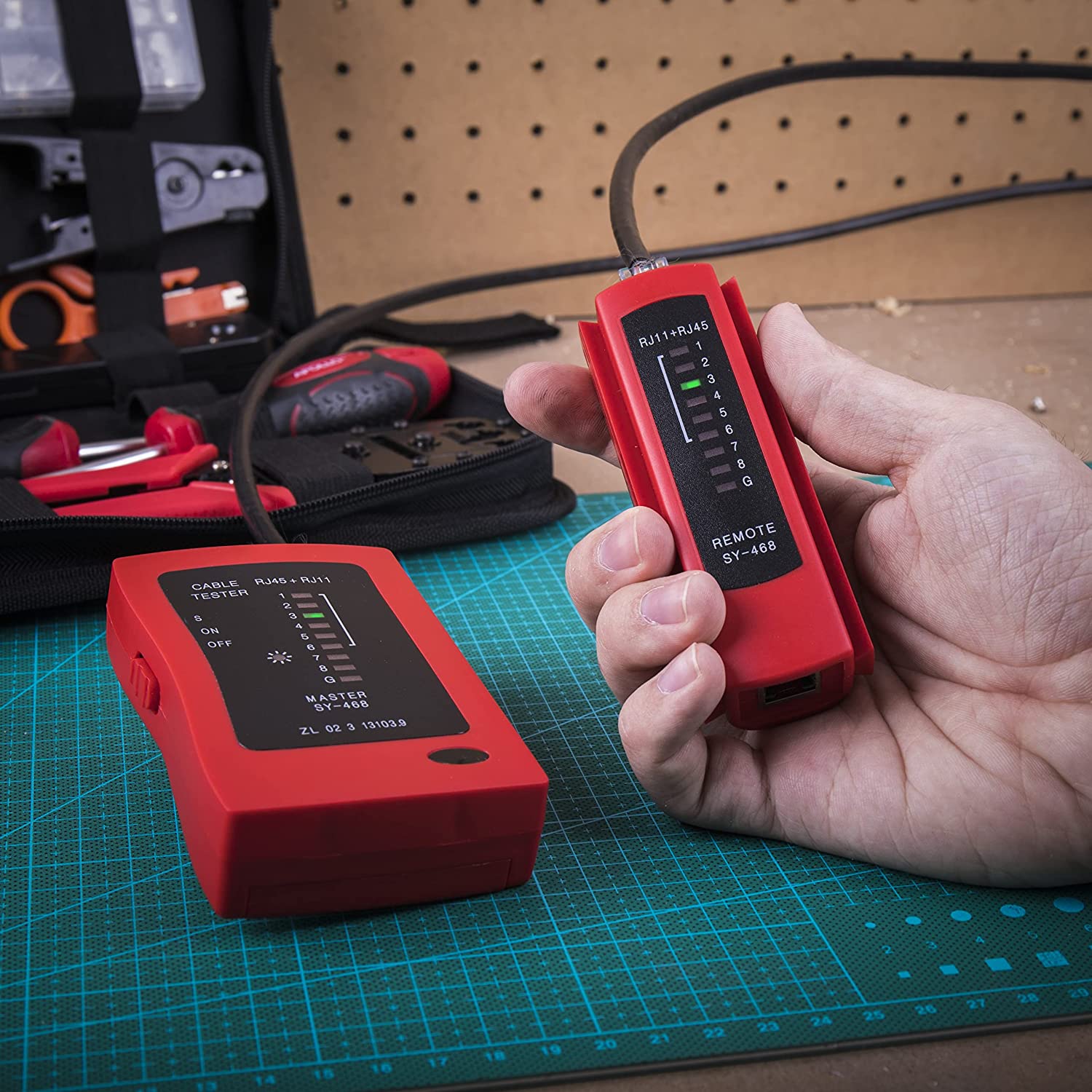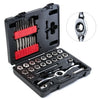
Portable Computer Repair Kits: Pros and Cons
In today's tech-driven world, computers are crucial for our everyday activities. However, they can sometimes break down. When this happens, you have a choice: fix it yourself or get help from a professional. This article will explore the good and bad sides of using portable computer repair tool kits, helping you decide what's best for you.
Key Takeaways
-
Using a repair kit can save you money compared to hiring a professional.
-
Fixing your computer yourself can help you learn more about how it works.
-
Having your own tools allows you to fix problems quickly without waiting for help.
-
Without the right skills, you might accidentally make the issue worse.
-
Some repairs could void your warranty, making future fixes more expensive.

Advantages of Using a Computer Repair Tool Kit
Cost Savings
One of the biggest benefits of using a computer repair tool kit is cost savings. By fixing your own computer, you can avoid the high labor costs that come with professional repairs. For example, a simple repair that might cost $100 at a shop can often be done for just the price of parts, which can be as low as $20.
Learning Opportunity
Using a repair kit also provides a great learning opportunity. You can gain hands-on experience and understand how computers work. This knowledge can help you troubleshoot future issues more effectively. Here are some skills you might learn:
-
How to replace hardware components
-
Basic software troubleshooting
-
Understanding computer parts and their functions
Convenience and Timeliness
Having your own repair kit means you can fix problems conveniently and quickly. You don’t have to wait for an appointment or travel to a repair shop. You can start working on your computer as soon as an issue arises, which can save you time and frustration.
Control Over Components
When you use a computer repair tool kit, you have control over components. You can choose the specific parts you want to use, ensuring they meet your needs. This is especially important if you prefer certain brands or types of components.
Having a well-equipped repair kit can empower you to tackle issues head-on, making you more self-sufficient in managing your technology.
In summary, a computer repair tool kit can save you money, provide valuable learning experiences, offer convenience, and give you control over your repairs. Whether you're a beginner or more experienced, having the right tools can make a significant difference in your ability to maintain your computer effectively.
Related Article: How a Computer Tool Kit Can Save You Time and Money
Disadvantages of Relying on a Computer Repair Tool Kit
Lack of Expertise
One major downside of using a computer repair tool kit is the lack of expertise. If you don’t have the right knowledge, you might accidentally make things worse. Complex issues often require specialized skills that many DIYers simply don’t have.
Risk of Further Damage
There’s always a chance of causing further damage when attempting repairs. Mishandling parts or making incorrect connections can lead to more serious problems. This can turn a simple fix into a costly repair.
Time-Consuming Process
DIY repairs can be quite time-consuming. What seems like a quick fix might take hours, especially if you’re not familiar with the troubleshooting steps. This can lead to frustration and lost productivity.
Voiding Warranty
Attempting repairs on a computer that’s still under warranty can void the warranty. Many manufacturers require that repairs be done by authorized technicians. If you try to fix it yourself, you might end up paying for future repairs that would have been covered.
In summary, while a computer repair tool kit can be handy, it’s essential to weigh these disadvantages carefully. Sometimes, seeking professional help is the best option to avoid costly mistakes.
Essential Tools in a Computer Repair Tool Kit
When it comes to fixing computers, having the right tools is essential. Here are some of the most important tools you should include in your computer repair kit:
Screwdrivers and Bits
-
Precision Screwdrivers: These are crucial for opening up devices. Look for a set that includes various sizes and types, such as Phillips and flathead.
-
Specialty Bits: Some devices, like Apple products, require unique bits like Pentalobe or Torx. Make sure your kit has these.
-
Magnetic Tips: This feature helps keep screws from falling into hard-to-reach places.
Pry Tools and Suction Cups
-
Pry Tools: These are used to gently open devices without causing damage. They help in separating screens from the body of the device.
-
Suction Cups: Great for lifting screens off devices like smartphones and tablets. They provide a strong grip without scratching surfaces.
-
Spudgers: These are handy for disconnecting cables and components safely.
Anti-Static Equipment
-
Anti-Static Wrist Strap: This is a must-have to prevent static electricity from damaging sensitive components.
-
Anti-Static Bags: Use these to store parts safely when not in use.
-
Grounding Mat: For larger repairs, a grounding mat can help keep everything safe.
Diagnostic Software
-
Hardware Diagnostic Tools: Software that can help identify issues with your computer's hardware.
-
System Monitoring Tools: These can help you keep track of temperatures and performance.
-
Data Recovery Software: In case of hard drive failures, having recovery software can save important files.
Having the right tools can make a big difference in your repair experience. Investing in quality tools not only saves time but also helps prevent damage to your devices.
By ensuring you have these essential tools, you can tackle a wide range of computer issues with confidence. Remember, the right tools can make all the difference in achieving successful repairs!
Related Article: The Role of Digital Multimeters in Computer Repair: A Beginner’s Guide
Choose the Best Option for Computer Repairs
In the world of computer repair, choosing between doing it yourself (DIY) and hiring a professional depends on several factors. If you have a simple problem and some basic skills, DIY can save you money and teach you a lot about how computers work. However, if the issue is complicated or you’re unsure, getting help from a professional can be the safer choice. They have the experience and tools to fix problems quickly and correctly. A balanced approach might be best: handle simple tasks yourself while leaving more complex repairs to the experts. This way, you can keep your computer running smoothly without risking damage.
Related Article: Computer Tool Kit Guide: Everything You Need to Know



